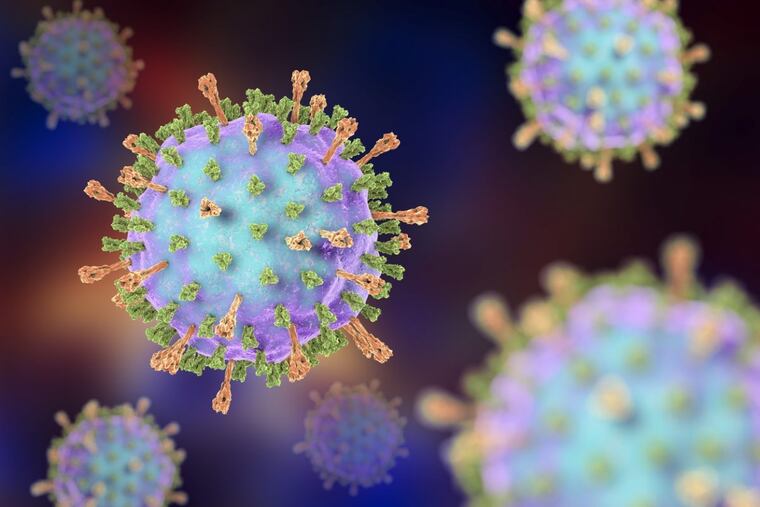More Philadelphia-area mumps cases reported
An 8-year-old Montgomery County child and an adult household member are the latest confirmed regional cases of the mumps, a county spokeswoman disclosed Wednesday.

An 8-year-old Montgomery County child and an adult member of the same household are the latest confirmed regional cases of the mumps, a county spokeswoman said Wednesday.
The child was taken to Children's Hospital of Philadelphia and found to have swelling of salivary glands, a common symptom of the mumps. The youngster was up to date with the recommended childhood measles, mumps, and rubella (MMR) vaccinations, but is believed to have contracted the highly infectious illness through the adult household member, who recently came down with the mumps, said county spokeswoman Kaitlyn Foti.
Montgomery County's public health office is helping the infected child's school alert fellow students' families.
The two cases are not believed to be related to last month's outbreak of mumps in Montgomery and Chester Counties and the state of Delaware. The majority of those cases were linked to Baile Mejicano, a social dance event held at the Chase Center in Wilmington on Feb. 10 and March 3.
Three Montgomery County cases were part of that outbreak, and 19 Chester County cases also were reported. Delaware public health officials said there were 13 cases there. Nine of those were people who went to one of the dances, while two others were people who lived with those who attended a dance. Two cases are still under investigation.
News of those cases came days after the release of a Harvard study that said the mumps outbreaks in the United States of recent years were likely due to the wearing-off of the vaccine's effectiveness over time. The researchers estimated that about a quarter of the people vaccinated against the mumps lose protection within eight years, half lose it within 19 years, and 75 percent lose it within 38 years. They recommended people be vaccinated again around age 18 and possibly get booster shots later. Federal health officials earlier this year recommended that adults at risk of infection, such as during an outbreak, get a booster.
Generally, it is advised that children get their first MMR vaccine around one year of age and again around the start of school. Vaccines aren't a guarantee against infection. The recommended two vaccines are usually 88 percent effective, while one is considered 78 percent effective.
Mumps symptoms are generally unpleasant but not serious, such as fever, fatigue, and body aches, but in rare cases deafness or sterility can occur.
The resurgence of the mumps – several thousand cases were reported in both 2016 and 2017 – has particularly been seen where people live in close contact, like on college campuses. The virus can be spread through saliva or mucus and by sharing items like cups, utensils or cigarettes, or through kissing.